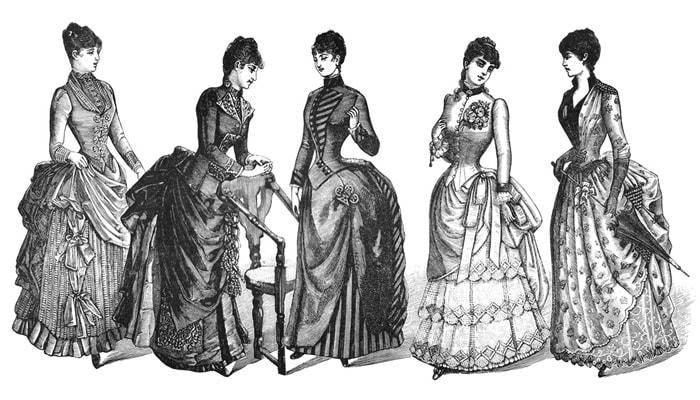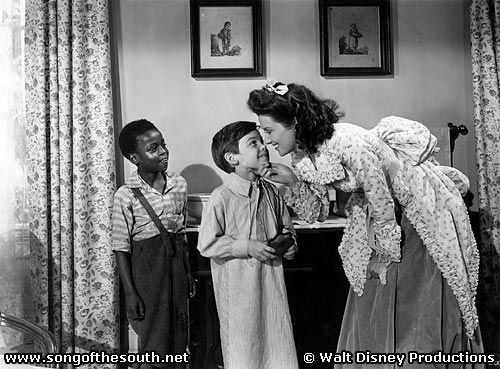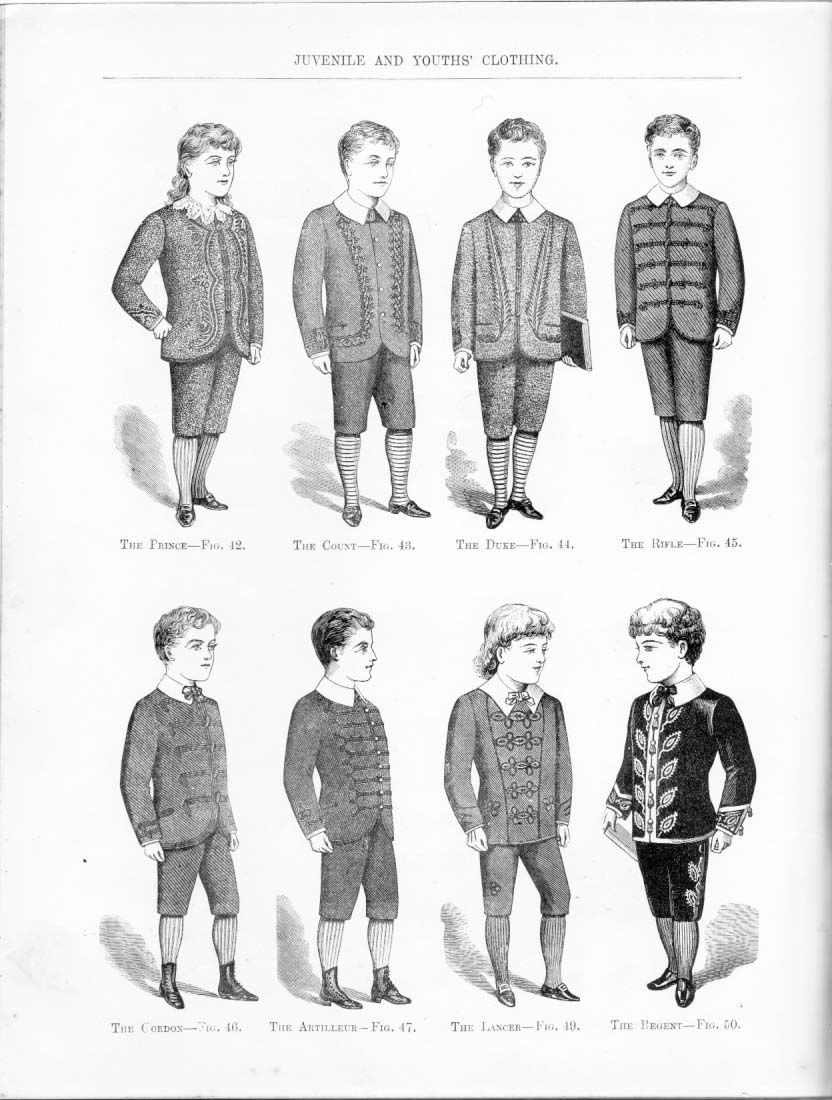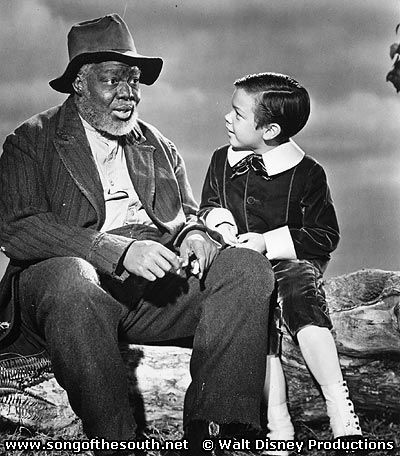You are using an out of date browser. It may not display this or other websites correctly.
You should upgrade or use an alternative browser.
You should upgrade or use an alternative browser.
Whoopi wants Song of the South released
- Thread starter Capang
- Start date
wonder whisper
Mouseketeer
- Joined
- Sep 5, 2017
Gone with the Wind isn't getting a complete pass any more. Just recently a theater cancelled showing it due to controversy and there are other small incidents. That slippery slope might just become worse and worse.
I just bought Dumbo because of quiet muttering that many films might be "cleaned up". I prefer my films intact.
The GWTW cancellation you mentioned was by a single obscure art house theatre. I haven't hear about any other blacklistings of the film, which is regularly shown on TCM. As for that one cancellation, the limited press on it quoted some spokesperson giving the the usual generic, vague boilerplate that the showing was cancelled because there were concerns the film "might offend."
I do agree that the censorship slipperly slope is getting worse, a prime example being Disney owned ESPN recently pulling an Asian sportscaster named "Robert Lee" from being of the commentator on the William and Mary vs. U of Virginia game. That bone headed move actually backfired, drawing a huge amount of criticism and ridicule of the network (some of which was entertaining, such as one observer stating ESPN would be instituting a policy to never broadcast any sports events held in Jacksonville, since it is named after Andrew Jackson, who did at one time own slaves).
wonder whisper
Mouseketeer
- Joined
- Sep 5, 2017
FWIW the movie is available on Amazon from 3rd party dealers.
As well as from dozens of eBay sources.
Jess_S
DIS Veteran
- Joined
- May 14, 2015
The PBS American Experience episode about Walt Disney had a little section devoted to Song of the South that I think is pretty relevant to this thread. The issue with the film isn't the Brer Rabbit stories. It's that the live action bits make slavery seem like a good time for all involved. Apparently Walt was told by those in the Civil Rights community at the time what he needed to do to make the film in a way that wouldn't offend people and he did pretty much exactly the opposite. (And then held the opening for the film at a segregated theater so that none of the black cast members could attend). It would be interesting to see what Whoopi's take is.
wonder whisper
Mouseketeer
- Joined
- Sep 5, 2017
The PBS American Experience episode about Walt Disney had a little section devoted to Song of the South that I think is pretty relevant to this thread. The issue with the film isn't the Brer Rabbit stories. It's that the live action bits make slavery seem like a good time for all involved. Apparently Walt was told by those in the Civil Rights community at the time what he needed to do to make the film in a way that wouldn't offend people and he did pretty much exactly the opposite. (And then held the opening for the film at a segregated theater so that none of the black cast members could attend). It would be interesting to see what Whoopi's take is.
Re: the "live action bits": the film is set post civil war during reconstruction.
So the African Americans in it are sharecroppers, not slaves. And anyone who wants to dispute that fact, please explain how Uncle Remus was free of his own will to leave the plantation.
Last edited:
Micca
SAHG: Stay At Home Grandfather
- Joined
- Dec 5, 2000
So the African Americans in it are sharecroppers, not slaves.
Thanks for pointing that out. While sharecropper wasn't ideal for people it sure wasn't slavery. Also the Uncle Remus & Aunt Tempy characters are the protagonists in the story. I'm not saying that the movie is totally unobjectionable, but it was made over 70 years ago, you could find fault with a number of movies from that era.
Jess_S
DIS Veteran
- Joined
- May 14, 2015
I haven't seen the movie so I have no idea when it takes place. I am merely relaying what I learned on PBS, which is that people were offended by the live action sequences, not the animation. The live action sequences were thought to be pro slavery. I would imagine people had their reasons for feeling that way, but since I am unlikely to ever see the movie, I have no way of verifying one way or another.
(ETA: This is not only what the documentary said, but what actually happened. I did further research, and it seems that reviewers at the time the film was released assumed that the story took place before Reconstruction. This led to an uproar over whether the film promoted an idealized view of slavery).
To me, the interesting bit is that Disney took the time to solicit input in how not to offend people, but then disregarded that advice.
(ETA: This is not only what the documentary said, but what actually happened. I did further research, and it seems that reviewers at the time the film was released assumed that the story took place before Reconstruction. This led to an uproar over whether the film promoted an idealized view of slavery).
To me, the interesting bit is that Disney took the time to solicit input in how not to offend people, but then disregarded that advice.
Last edited:
If that is indeed what the documentary states regarding when it takes place, they have it wrong.
As wonder whisper mentions, it's during Reconstruction, hence Uncle Remus' ability to leave when he wanted to.
It's a shame this film is not readily available. The wonderful lessons that Uncle Remus offers the boy through his stories and the deep friendship and respect they show for each other, in my opinion, outweigh whatever negative stereotypes supposedly hinder the film.
As wonder whisper mentions, it's during Reconstruction, hence Uncle Remus' ability to leave when he wanted to.
It's a shame this film is not readily available. The wonderful lessons that Uncle Remus offers the boy through his stories and the deep friendship and respect they show for each other, in my opinion, outweigh whatever negative stereotypes supposedly hinder the film.
wonder whisper
Mouseketeer
- Joined
- Sep 5, 2017
I haven't seen the movie so I have no idea when it takes place. I am merely relaying what I learned on PBS, which is that people were offended by the live action sequences, not the animation. The live action sequences were thought to be pro slavery. I would imagine people had their reasons for feeling that way, but since I am unlikely to ever see the movie, I have no way of verifying one way or another.
(ETA: This is not only what the documentary said, but what actually happened. I did further research, and it seems that reviewers at the time the film was released assumed that the story took place before Reconstruction. This led to an uproar over whether the film promoted an idealized view of slavery).
To me, the interesting bit is that Disney took the time to solicit input in how not to offend people, but then disregarded that advice.
The reviewers must have been ignorant to think it was set before reconstruction. Wikipedia states that it is not set before or during the civil war:
https://en.wikipedia.org/wiki/Song_of_the_South
And the attire worn by Johnny and his mother Sally are definitely late middle era Victorian fashion, which would set the film sometime in the mid to late 1870s. Examples below:




Last edited:
Jess_S
DIS Veteran
- Joined
- May 14, 2015
I love the clothing images you shared (though I can't imagine most people would know Reconstruction fashion from Civil War era fashion).
The Wikipedia article you shared has a discussion on the controversy surrounding the movie that tracks what was said in the PBS documentary. People do also have other concerns about dialect, stereotypical presentation of characters, etc. -- all pretty much limited to the live action sequences. All together, I can't imagine that the Disney company would consider making the film available in the US. It's just too inconsistent with their current carefully cultivated brand image.
I remember my dad reading the Uncle Remus stories to me when I was a kid and they are still widely available in books. And Splash Mountain has the animated characters. So you can still get bits and pieces of the film.
The Wikipedia article you shared has a discussion on the controversy surrounding the movie that tracks what was said in the PBS documentary. People do also have other concerns about dialect, stereotypical presentation of characters, etc. -- all pretty much limited to the live action sequences. All together, I can't imagine that the Disney company would consider making the film available in the US. It's just too inconsistent with their current carefully cultivated brand image.
I remember my dad reading the Uncle Remus stories to me when I was a kid and they are still widely available in books. And Splash Mountain has the animated characters. So you can still get bits and pieces of the film.
maltdizzy
DIS Veteran
- Joined
- Aug 10, 2013
People do also have other concerns about dialect, stereotypical presentation of characters, etc. -- all pretty much limited to the live action sequences.
As someone just old enough to remember when many of the stereotypes used in the film were finally going away in real life, I can say watching the live-action sections can be cringe-inducing. The fact that some people no longer understand why is a testament to these stereotypes being largely eradicated for younger generations but also alarming that some people never understood how offensive they were in the first place.
Walt's SOTS would have been huge in 1939, but in 1948, after WWII and the Holocaust, audiences were far less receptive to what had been a winning formula for portraying Africa-Americans for Gone With the Wind.
(Edited to trim)
Last edited:
wonder whisper
Mouseketeer
- Joined
- Sep 5, 2017
As someone just old enough to remember when many of the stereotypes used in the film were finally going away in real life, I can say watching the live-action sections can be cringe-inducing. The fact that some people no longer understand why is a testament to these stereotypes being largely eradicated for younger generations but also alarming that some people never understood how offensive they were in the first place.
Walt's SOTS would have been huge in 1939, but in 1948, after WWII and the Holocaust, audiences were far less receptive to what had been a winning formula for portraying Africa-Americans for Gone With the Wind.
(Edited to trim)
Ok, so any and all films, programs, works of fiction, live performances or images which include any antebellum Southern settings or elements whatsoever have now been officially added to the ever lengthening, slippery slope list of verboten, "offensive" things.
Got it.

Last edited:
wonder whisper
Mouseketeer
- Joined
- Sep 5, 2017
Here's another item that isn't on the rapidly lengenthing verboten list...yet (MGM travelogue short from 1939 that still runs as filler on TCM). BTW, the spring heritage celebration it shows is still an annual event there (now labeled the Antebellum Pilgrimage).
Last edited:
jknezek
DIS Veteran
- Joined
- Dec 19, 2016
I just don't get why people have such a problem with the logic of leaving SotS in the vault. Disney has a significant corporate focus on multiculturalism. In the workforce, in the customers, and in their movies. Bringing up a movie with no longer accepted racial stereotypes just isn't on their to-do list any more than it is on any other consumer focused company these days. It's not the image they want to present.
The time of SotS and the "happy but uneducated folkish sharecropper" just isn't an acceptable storyline. The period was really defined by Black Flight from the South, especially from the late 1870s on, the rise of the KKK, the lynching of 4000 African Americans over 80 years, an institutionalization of racism in all levels of society, and the establishment of laws and unwritten rules designed to keep African Americans as low down the economic and social totem pole as was possible. Never forget that in Hinds County MS for a period of almost 4 years from 1869 until the mid 1870s, the county averaged one slaying of a black man per day. And that in 1868 in Louisiana, almost 1100 mostly black men and women were slaughtered over a few months.
Honestly, portraying the "happy black man of the South" in the 1870s is just in poor taste and doesn't provide the image that Disney wishes to project. And that is why SotS is done as a commercial release.
The time of SotS and the "happy but uneducated folkish sharecropper" just isn't an acceptable storyline. The period was really defined by Black Flight from the South, especially from the late 1870s on, the rise of the KKK, the lynching of 4000 African Americans over 80 years, an institutionalization of racism in all levels of society, and the establishment of laws and unwritten rules designed to keep African Americans as low down the economic and social totem pole as was possible. Never forget that in Hinds County MS for a period of almost 4 years from 1869 until the mid 1870s, the county averaged one slaying of a black man per day. And that in 1868 in Louisiana, almost 1100 mostly black men and women were slaughtered over a few months.
Honestly, portraying the "happy black man of the South" in the 1870s is just in poor taste and doesn't provide the image that Disney wishes to project. And that is why SotS is done as a commercial release.
marcyleecorgan
DIS Veteran
- Joined
- Feb 12, 2017
Off the top of my head:
The United Kingdom:Slavery Abolition Act 1833 (1843 before full abolition).
France: 1848 (it took the French a few tries to get it right).
Slavery in the US was of course abolished with the 13th amendment in 1863.
I'm pretty sure there are countries that banned slavery long before the UK and France, and France actually banned slavery on its own shores as early as the 1300s.
Check out the book, "The History of the Caribbean" by Eric Williams. It is actually more or less a history book on slavery.
Sadly our Western Civilization was not as hot to trot to change this as we might want to believe:
"1792 - Denmark bans import of slaves to its West Indies colonies, although the law only took effect from 1803. 1807 - Britain passes Abolition of the Slave Trade Act, outlawing British Atlantic slave trade. - United States passes legislation banning the slave trade, effective from start of 1808."
Notice that's "slave trade", as in, no more new shipments (literally). But nothing about freeing the existing slaves or giving them rights.
Geoff_M
DIS Veteran, DVC Member, "Cum Hoc Ergo Propter Hoc
- Joined
- Sep 13, 2000
Wait! What? Are you suggesting that Disney films aren't a reflection of reality? In that light, should we criticize The Princess & The Frog because it doesn't properly reflect the reality of race relations in 1920's New Orleans?The time of SotS and the "happy but uneducated folkish sharecropper" just isn't an acceptable storyline. The period was really defined by Black Flight from the South, especially from the late 1870s on, the rise of the KKK, the lynching of 4000 African Americans over 80 years, an institutionalization of racism in all levels of society, and the establishment of laws and unwritten rules designed to keep African Americans as low down the economic and social totem pole as was possible. Never forget that in Hinds County MS for a period of almost 4 years from 1869 until the mid 1870s, the county averaged one slaying of a black man per day. And that in 1868 in Louisiana, almost 1100 mostly black men and women were slaughtered over a few months.
jknezek
DIS Veteran
- Joined
- Dec 19, 2016
Wait! What? Are you suggesting that Disney films aren't a reflection of reality? In that light, should we criticize The Princess & The Frog because it doesn't properly reflect the reality of race relations in 1920's New Orleans?
Yep. That's exactly what I'm saying. Of course it is. It has nothing to do with the fact that the happy sharecropper in SotS is based on a bunch of idiotic and offensive stereotypes that aren't used anymore.
The fact that people can't seem to understand the cultural stereotypes displayed by Uncle Remus aren't really something the Disney company wants to be affiliated with anymore indicates a complete lack of common sense and critical thinking skills. I get that it was produced at a different time. But it's simply not going to help Disney's p.r. goals to stand behind this film. And for companies, public relations are important.
I'm of the opinion that we can come to terms that our history is less than crystal clean, without trying to wash it from existence.
Agreed, but...
America is the most diverse country by far, it's not even close. We have to deal with a lot more acceptance of diversity than any other country in the world, and it's just human nature to have problems with people that are different.
This is utter nonsense. Granted, "diversity" can be defined and measured in different ways, but one needs only to Google "diversity by country" to see just how far off the mark this is.
Disneymom1126
DIS Veteran
- Joined
- Jul 31, 2014
I agree with the use of this film for educational purposes - when combined with history of the reconstructive era, critical discussion about the life of black people during that time frame, the way those with positions of power and influence maintained systems of racism and stereotypes (via Jim Crow, minstrel shows, etc.), and reflection on the extent to which those systems and stereotypes persist. There could also be discussion about the time period in which the film itself was released and what it meant at the time and when the movie was removed from circulation. Many of the arguments here (re: erasing history vs. learning from history) could lead to educationally purposeful discussions.
The trouble in my opinion in putting this out in mass-circulation is that in the vast majority of households, what I wrote above is not what would happen. Instead, it would just further reinforce stereotypes, especially for people who live in secluded locations and do not interact with people who are different from them. Film, media, art, etc. play a huge role in how children especially come to view the world around them and themselves. It's the same reason Disney has, over time, moved away from the "prince saves the princess" in all the movies - now the princesses often save themselves - it's to stop furthering a narrative that women can't make it on their own. Now, I know your next argument will be, but they haven't banned Snow White and Sleeping Beauty, etc., but I think this would be an apples and oranges comparison.
The trouble in my opinion in putting this out in mass-circulation is that in the vast majority of households, what I wrote above is not what would happen. Instead, it would just further reinforce stereotypes, especially for people who live in secluded locations and do not interact with people who are different from them. Film, media, art, etc. play a huge role in how children especially come to view the world around them and themselves. It's the same reason Disney has, over time, moved away from the "prince saves the princess" in all the movies - now the princesses often save themselves - it's to stop furthering a narrative that women can't make it on their own. Now, I know your next argument will be, but they haven't banned Snow White and Sleeping Beauty, etc., but I think this would be an apples and oranges comparison.
Geoff_M
DIS Veteran, DVC Member, "Cum Hoc Ergo Propter Hoc
- Joined
- Sep 13, 2000
Here's the problem with that argument... It's highly doubtful that person not familiar with the stereotypes of concern in SotS would decide to ingrain them personally based on watching this film, particularly when it's so easy to see that they doesn't mesh with the world they see around them today. I think we need to give people a little more credit than that.The trouble in my opinion in putting this out in mass-circulation is that in the vast majority of households, what I wrote above is not what would happen. Instead, it would just further reinforce stereotypes, especially for people who live in secluded locations and do not interact with people who are different from them.
FWIW, I agree that there's zero chance that Disney would release this film again in the foreseeable future... particularly given the events in this country in the last few months. But I think it's a shame that it has to be that way when it doesn't have to be.
GET A DISNEY VACATION QUOTE
Dreams Unlimited Travel is committed to providing you with the very best vacation planning experience possible. Our Vacation Planners are experts and will share their honest advice to help you have a magical vacation.
Let us help you with your next Disney Vacation!
Dreams Unlimited Travel is committed to providing you with the very best vacation planning experience possible. Our Vacation Planners are experts and will share their honest advice to help you have a magical vacation.
Let us help you with your next Disney Vacation!
New DISboards Threads
- Replies
- 2
- Views
- 33
- Replies
- 0
- Views
- 26